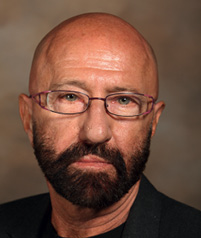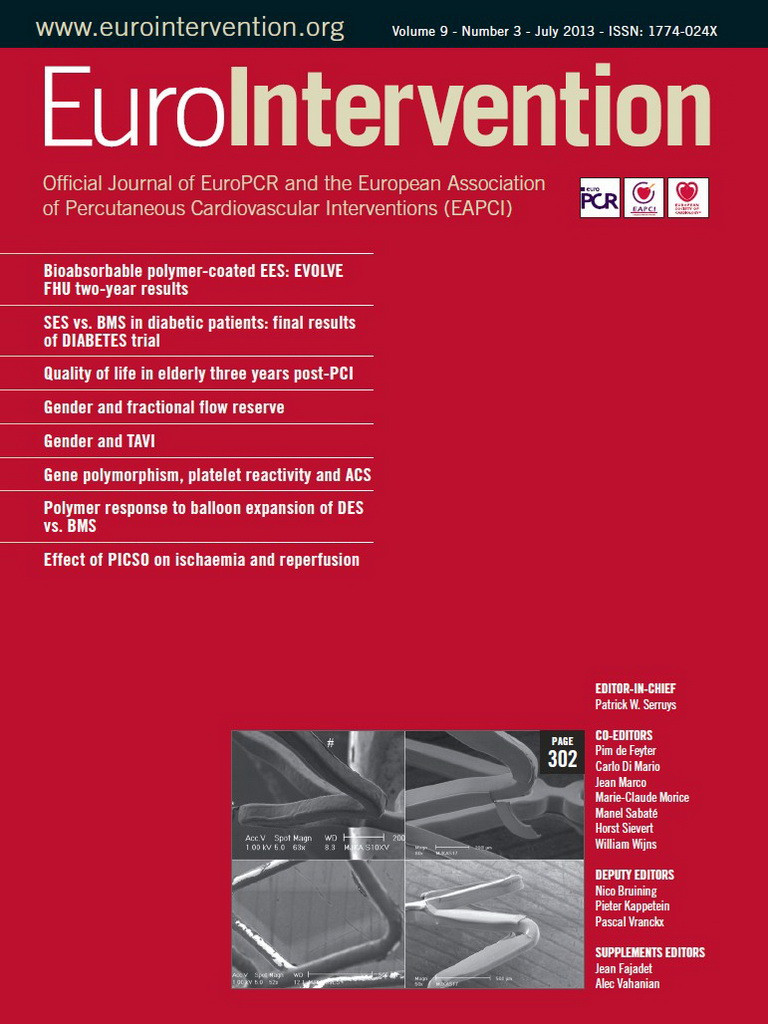NEWS
■The ESC recommends patients and centres for renal denervation Renal denervation has potential in the treatment of multiple cardiovascular diseases: up to 10% of patients with high blood pressure are resistant to treatment, placing them at increased risk of cardiovascular events, including heart attacks. Clinical trials show that catheter-based renal denervation reduces blood pressure in patients who do not respond to conventional drug therapy.
■Become a member of the EAPCI! Like your 4,500 peers who are members from 118 countries, join YOUR association. Membership in the EAPCI is open to all health specialists whose primary interest lies in the field of cardiovascular interventions.
■Update your Working Group’s data Please contact us at [email protected] with the updated contact details of your Interventional Working Group. Your active involvement and participation are essential.
EAPCI Focus on the Working Group of Interventional Cardiology of the Croatian Cardiac Society
An interview with the President, Aleksander Ernst
What does membership in the EAPCI mean for a National Society or Working Group?
We see the EAPCI as our professional brotherhood across the European community. It is a brotherhood that promotes creativeness, develops uniform ideas and initiates projects for its members. The EAPCI plays an important role in our daily practice by seeking to achieve uniformity in our curriculum, by its positive support of the training of interventional fellows through innovative educational programmes and by its influence on research in our pursuit of common goals; doing this, not only as observers, but also as active participants in international trials and registries.
It is my hope that in the future, despite the myriad of challenges facing both the practice of medicine and society today, that the EAPCI remains committed to the core ideas of its founders, taking a stand for the benefit of our patients and for scientific truth.
What are the current issues related to the national society?
Naturally, the successful accession of Croatia to the European Union on July 1, 2013 is a momentous event for all Croatians; however, we, as cardiologists, still have certain hurdles to overcome. Our most pressing challenge is acquiring recognition from our national government that we exist as independent subspecialties (along with the acceptance of a legal mandatory curriculum); this is true, not only interventional cardiologists, but for electrophysiologists and heart failure specialists as well. We began applying for this independent status to the Croatian Ministry of Health six years ago and, as with other smaller countries, we have encountered the all too familiar wall of bureaucracy.
In our discussions with the government we have been able to voice various powerful arguments in our favour, not the least of which is the strong position of our international professional association - the EAPCI - and its fellowship programs; the recently launched ESCeL Platform is critically important as well and, I might add, is a fantastic tool, as is the official journal of the EAPCI, EuroIntervention.
Similar to our colleagues throughout Europe and elsewhere, the current economic downturn is causing a serious impact on Croatian healthcare. One example of this is that we recently initiated a TAVI programme in Croatia, and after approximately 40 cases, the project was stopped when health insurance companies refused to reimburse it. Their reasoning was that these funds were better re-allocated to different subsets and younger patients, and thus, for TAVI patients, cheaper medical alternatives had to be found. The exciting development of bioabsorbable scaffolds provides us with another example of an emerging technology which, for the moment, remains outside of our reach. In my opinion, to effectively keep up pace with these new technologies, government initiated registries for the rational introduction of technologies such as TAVI and bioabsorbable scaffolds in clinical practice is mandatory. This would be a good starting point in helping us improve patient care as well as improving our research.
Finally, increasing the public awareness of our representation at the international level needs to be better promoted. One step in this direction was the joint session at EuroPCR 2012 with the Working Groups of Serbia, Greece, Cyprus and Hungary, as well as a month ago in Paris at PCR 2013 with the Working Groups of Cyprus, South Africa and Serbia. After a successful presentation of our Working Group at TCT 2012 in San Francisco, a similar initiative will take place at TCT 2013 in collaboration with the Working Groups of Serbia, Cyprus, Greece and South Africa. We hope that these joint sessions, along with our involvement in international courses and organisations, will lead to our participation in major international trials and registries, which will not only reflect the high-quality of our patient care, but underline the excellence of our research capabilities as well. We also believe that, in the end, these activities will indirectly help us with our current challenge, to arrive at a positive outcome with our own national agencies.

Aleksander Ernst, President of Interventional Working Group of the Croatian Cardiac Society
![]()
President: Aleksander Ernst
Past President: Aleksander Ernst
Contact details: Aleksander [email protected]@gmail.com
Website: http://crointervent.kardio.hr
Founded: 1995
Members of the Working Group: 50 from 12 cathlabs (18 rooms)
EAPCI members: 21
Annual meeting: every second year, last meeting took place on the 5-6 April, 2013, in Zagreb

